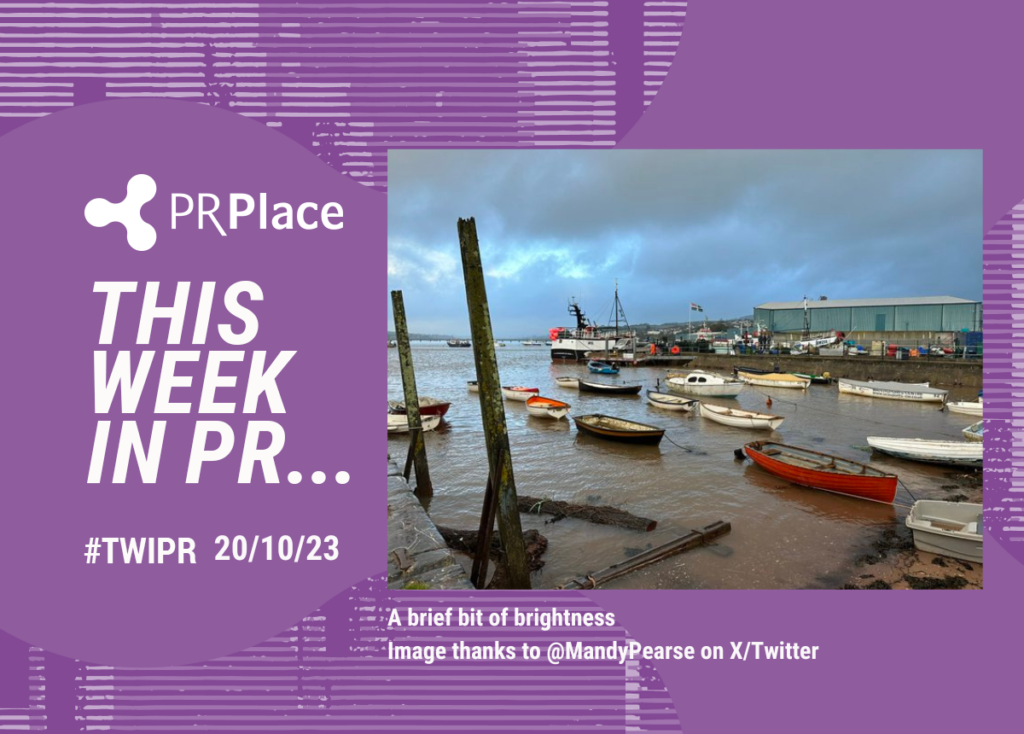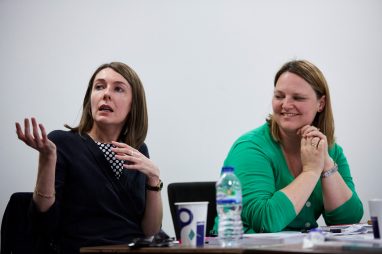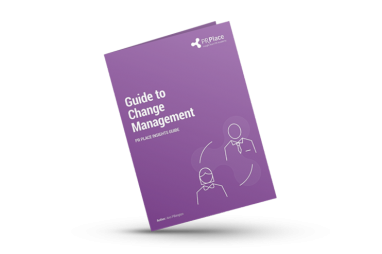This week in PR (20 October)

About the author
Richard Bailey Hon FCIPR is editor of PR Academy's PR Place Insights. He teaches and assesses undergraduate, postgraduate and professional students.

It happened this week
- He was the longstanding Conservative supporter who wrote F**k Business to explore the paradox of a once business-friendly party setting itself against the interests of most businesses and the City over Brexit. Then he was appointed as the Conservative government’s LGBT business champion, before resigning over attitudes to inclusion at the top of government. Now Iain Anderson, founder of public affairs agency Cicero (now H/Advisors Cicero) has been appointed by the Labour Party to advise on its relations with business, the Financial Times reports.
- Here’s the full list of PR Week award winners across 35 categories.
Profession and ethics
- Maja Pawinska Sims: ICCO Ratifies Principles For Ethical Use Of AI In Public Relations (16 October)
‘The International Communications Consultancy Organisation (ICCO) has ratified its principles for the ethical use of AI in public relations during the 2023 ICCO Global Summit.’ - Martin Flegg: Getting qualified (15 October)
‘Why don’t more internal communicators and PR practitioners get qualified? Is it because we don’t understand the personal and professional benefits of doing so, or are we just too distracted by other forms of recognition?’
Business and finance
- Clotilde Gros: Will the Birkenstock IPO be a wake up call to others thinking of following in its footsteps? (17 October)
‘As a Hackney mum, I have three pairs myself (yes three!) and a pair for every member of my family. The brand was very successful as a privately owned business and there was no real need to change.’ - Ian Silvera: The CMA’s final call of duty (17 October)
‘The CMA approved the [Activision] deal, blasting Microsoft in the process. “Businesses and their advisers should be in no doubt that the tactics employed by Microsoft are no way to engage with the CMA,” CEO Sarah Cardell said. “We take our decisions free from political influence and we won’t be swayed by corporate lobbying.”
Purpose, climate and ESG
Consulting, skills and careers
- Stuart Thomson: The brief challenge: the foundation of a good relationship (18 October)
‘The brief for any communications work, PR, PA, internal communications, should have the same fundamental approach. It needs to provide background on the organisation, an outline of the work and what it is the organisation is trying to achieve.’ - Nik Govier: Blurred is five! (18 October)
‘We wanted to be a profitable, net-zero business, but also to create an environment where people could be their true, best selves, where they could do the best work of their careers and where they could genuinely make a difference.’
Gender, diversity, health and wellbeing
- Shamina Peerboccus: Leadership redefined: My journey of authenticity and growth (18 October)
‘I reached a moment in time where I was ready to break free from the confines of my comfort zone and wanted to eagerly explore diverse experiences. Embracing the discomfort of unfamiliar situations became something I was determined not to avoid but to confront head-on.’
Public and third sectors
- James Sharp: Why the NHS needs to make digital communication crystal clear (17 October)
‘The paradigm of healthcare has been redefined in the digital age. As the NHS takes robust strides in digital communication, one fact stands out: digital accessibility is a collective responsibility, demanding attention from all.’
Politics, public affairs and public sphere
- Rachel Ward: Did the SNP conference set the course for independence? (19 October)
‘If the SNP win a majority of seats at the next general election, they will claim to have a democratic mandate for departure from the UK. That is, if the party wins at least 29 seats, this would, so Yousaf insists, trigger “immediate negotiations” between the SNP and the UK Government for a second Scottish independence referendum.’ - George Thomas: Navigating global turbulence (17 October)
‘Rarely since the 1970s has the global economy seemed so turbulent and reports this week suggest further weakening and potential for a recession in H1 2024.’
Crisis, risk and reputation
- Alan Smith: Crisis communications tips to keep you out of hot water (17 October)
‘Having worked in communications in the water industry for more than 30 years, and given the current hostile headlines around water companies, you won’t be surprised to hear I’ve managed many crises in my time.’ - Amanda Coleman: Ten Minutes With Mandy Pearse
(17 October)
‘You need to build stakeholder relationships (including with the media) in the good times, so that when a crisis hits you’ve built that trust in each other so you can focus on delivering the task.’ - Chris Tucker: The rise of ‘insider risk’ and what we can do to prevent it (13 October)
‘The NPSA speaker began with a stark quote: “If you employ people, you have insider risk.” Organisations are often heard saying their people are their greatest asset, but it’s important to see the other side of that equation.’
Internal communication
INTERNAL COMMUNICATION DIPLOMA
- Emma Drake: Deep Dive with Jo Twiselton – Strategic Communication & People-Focussed Change [podcast] (19 October)
‘Everybody had a different experience of the pandemic; we all deal with transition in a very different way. Understanding that is the core of understanding how people change.’ - Jenni Field: Six keys to impactful communication (19 October)
‘There is theory behind good communication and whenever you’re looking at making changes either to your individual style or the overall corporate internal communication, there are six things to consider for impactful communication.’ - Rachel Miller with Sue Palfrey: Podcast: How to support colleagues experiencing menopause (13 October)
‘I am 42 and over the past year I’ve started to experience perimenopausal symptoms. It’s a bit of a taboo topic. Yet people experiencing menopause are the fastest growing demographic in the workforce.’
Media, digital and technology
- Matt Redley: The SEC Newgate AI Weekly (19 October)
‘The co-founder of Inflection and Google’s DeepMind, and the former CEO of Google, Mustafa Suleyman and Eric Schmidt have today written in the Financial Times making the case for a global body similar to the UN Intergovernmental Panel on Climate Change (IPCC) to help shape protocols and norms around artificial intelligence.’ - Henry Columbine: Viewer beware: how TV format fusion is making it more difficult to separate fact, fiction and opinion (17 October)
‘In the UK, we are lucky that there is more editorial integrity than in other parts of the world where media is state-controlled or heavily politicised. We have a range of publications and TV channels offering different perspectives that, taken together, should help us to formulate our own views. But doing so requires us to be proactive, critical, and curious.’ - Neville Hobson: Calling time on X (17 October)
‘I’m no longer willing to actively use, promote and support a social network that I no longer trust or believe in. There hasn’t been a sudden tipping point, it’s more a slow burn of alarm, concern and disillusionment in a place I joined in December 2006.’ - Dan Slee: LONG READ: What comms people need to know about deep fake audio (15 October)
‘I’d heard that the biggest single threat posed by deepfake isn’t video at all. It’s deepfake audio. Audio rather than video, the argument runs, is easier to create and easier to believe.’


